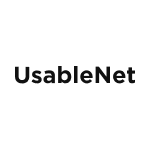All brands and businesses should be worried about accessibility, but there are special considerations that organizations in the housing industry need to take into account.
This includes banks, mortgage brokers, lenders, property management companies, landlords, and anyone else who people need to work with in order to secure or maintain housing.
In this post, we’re going to look at what’s happened with website accessibility in the housing industry in 2021 and what businesses can do to increase digital accessibility to be compliant with all federal and local laws in the new year.
What Impacts Accessibility in the Housing Industry
The Americans with Disabilities Act (ADA) already requires “reasonable accommodation” to all people, which includes digital accessibility. This is a federal law that impacts all organizations, including those in the housing industry.
This is significant because so many organizations in the housing industry have important resources and tasks online. They may require online applications, online mortgage or loan payments, or only feature contract-signing or home listings online.
All of this must be accessible.
It’s important to point out, too, that some states have additional laws that mandate accessibility.
Florida’s Fair Housing Act (FHA) is perhaps the most significant for the housing industry in particular, which prohibits discrimination in housing on the basis of race, religion, disability, sex, familial status, or national origin. This means that applying for or paying for housing must be accessible, too.
California’s Unruh Act prevents discrimination, and it permits the recovery of $4,000 per incident of discrimination. If your digital presence isn’t ADA compliant, then it’s not Unruh compliant either.
Housing Industry Accessibility Lawsuits
Right now, one visual disability digital lawsuit is filed every single hour. This impacts the housing industry, too; the real estate sector is in one of the top ten industries impacted by digital accessibility cases right now.
We do know that 10% of new cases are brought against mobile apps, and nearly ⅓ of businesses who are sued over a mobile app had a previous site claim.
Businesses in the housing industry are often sued because the websites are easy to access and assess accessibility functions. Many have complex functionality with a security-first focus (which makes it difficult to maintain WCAG criteria unless accessibility is a priority in the development process).
Housing companies are also often connected to large property management firms with large budgets, which can be attractive to plaintiff law firms.
How to Prevent FHA and ADA Lawsuits in 2022
Over 75% of federal claims site the WCAG 2.1AA as the standard of reference and the basis of their lawsuit, so abiding by the most current version of the WCAG is going to be your best bet at preventing accessibility lawsuits.
Take stock of your entire website and digital presence, starting with high-visibility pages and critical tasks first. Conduct both an automated audit, and work with blind users and keyboard-navigation users to test your site thoroughly.
You also want to train your customer service team to offer front-line support, which may mitigate any initial issues and help you to address problems before they become a lawsuit.
While avoiding lawsuits altogether is ideal, remember that you can also take out liability insurance to protect you in the event of a claim. Make sure you check your coverage, however, and ensure that accessibility suits are included.
Looking for help increasing your site accessibility to prevent ADA, FHA, and Unruh lawsuits against your business? Contact UsableNet for a consultation with an Accessibility Expert.








